-
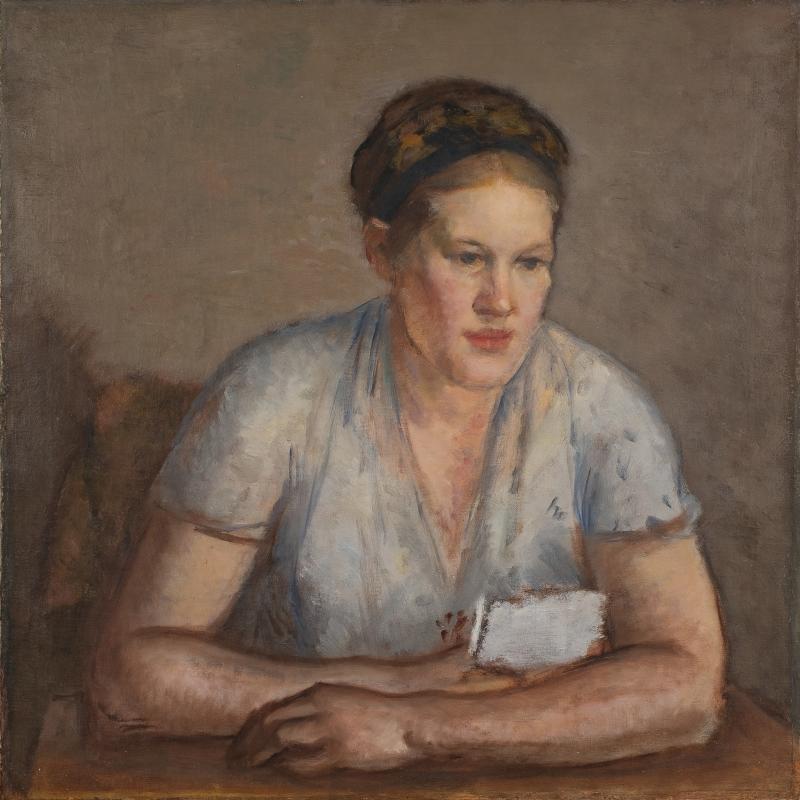 Simka SimkhovitchElsa Reading a Letter, Circa 1940Oil on canvas24 1/4 x 24 1/4 inches,
Simka SimkhovitchElsa Reading a Letter, Circa 1940Oil on canvas24 1/4 x 24 1/4 inches,
Framed: 29 x 29 inchesEstate of the Artist
-
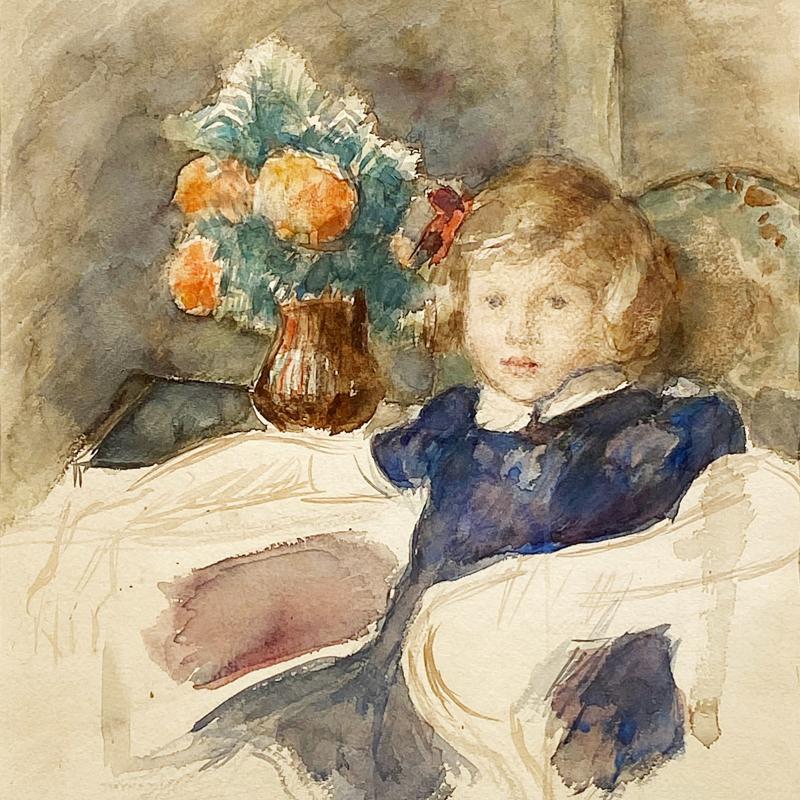 Simka SimkhovitchSonya in Blue, circa 1936Watercolor on paper17 x 14 1/4 inches (sight),
Simka SimkhovitchSonya in Blue, circa 1936Watercolor on paper17 x 14 1/4 inches (sight),
Framed: 26 3/4 x 23 1/4 inchesUnsigned, Estate of the Artist
-
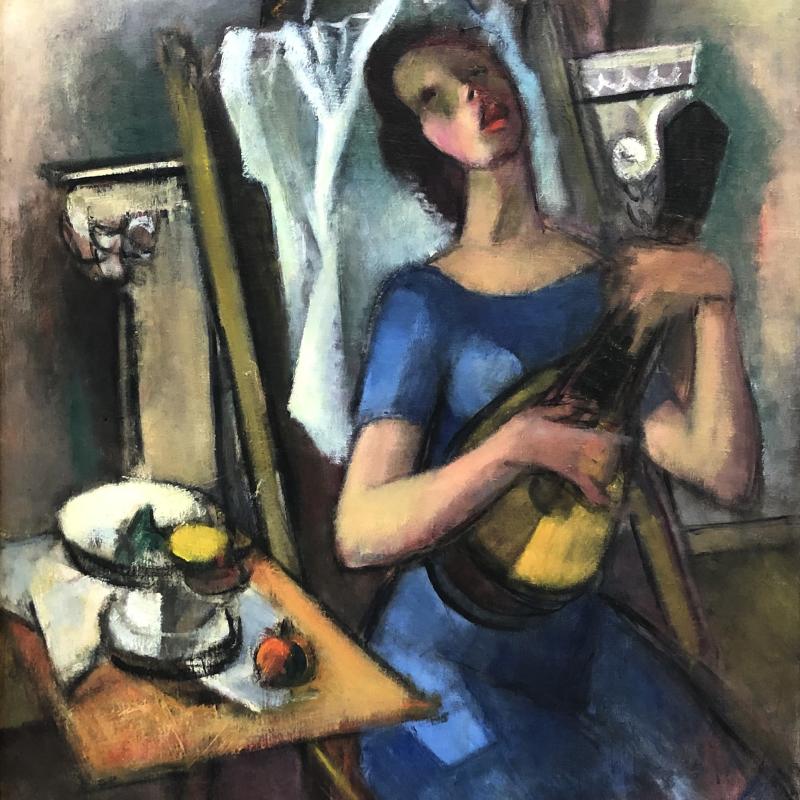 Simka SimkhovitchWoman with a Guitar, c. 1940sOil on canvas24 1/4 x 22 1/4 inches,
Simka SimkhovitchWoman with a Guitar, c. 1940sOil on canvas24 1/4 x 22 1/4 inches,
Framed: 30 1/2 x 28 inchesSigned on verso, Estate of the Artist
-
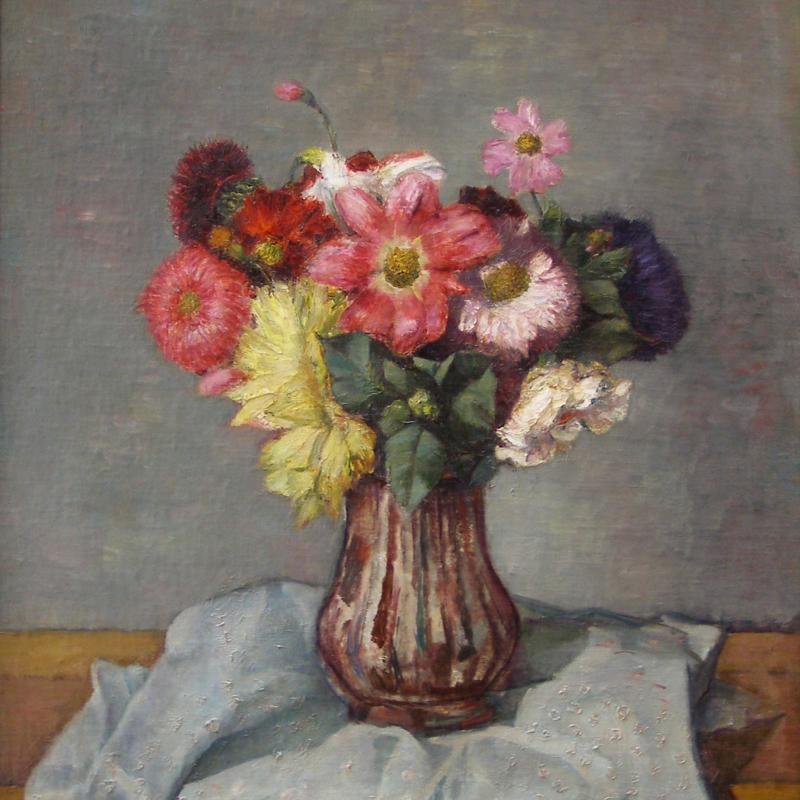 Simka SimkhovitchFloral Still Life, 1934Oil on canvas25 1/4 x 21 inches Framed: 32 1/4 x 28 1/4 inchesSigned and dated lower right, Estate of the Artist
Simka SimkhovitchFloral Still Life, 1934Oil on canvas25 1/4 x 21 inches Framed: 32 1/4 x 28 1/4 inchesSigned and dated lower right, Estate of the Artist
-
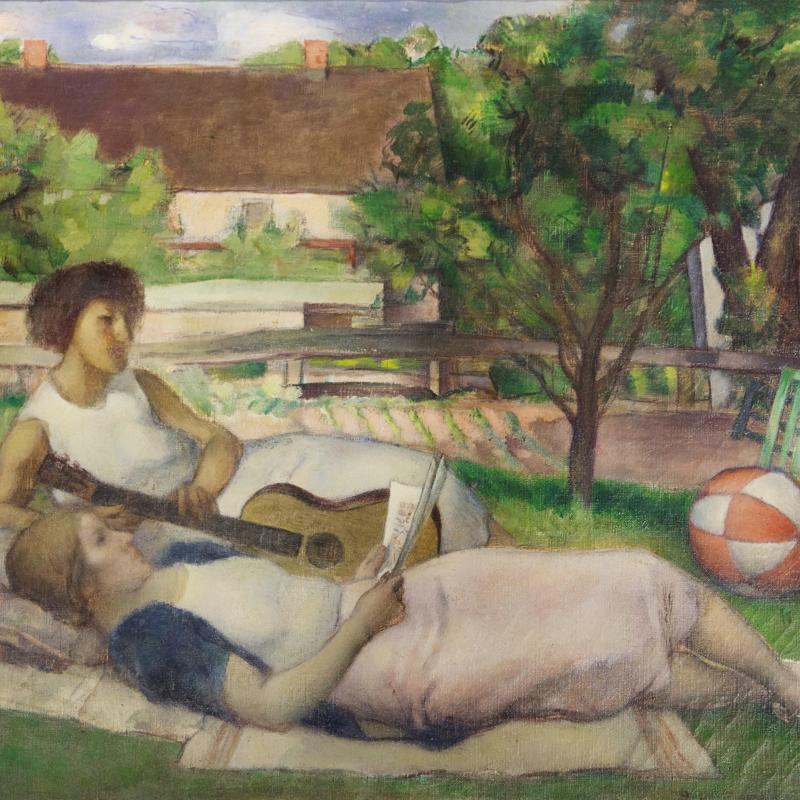 Simka SimkhovitchOut Doors, 1933Oil on canvas26 1/8 X 19 1/8 inches,
Simka SimkhovitchOut Doors, 1933Oil on canvas26 1/8 X 19 1/8 inches,
Frame: 33 1/2 x 26 1/2 inchesSigned lower right: Simkhovitch
-
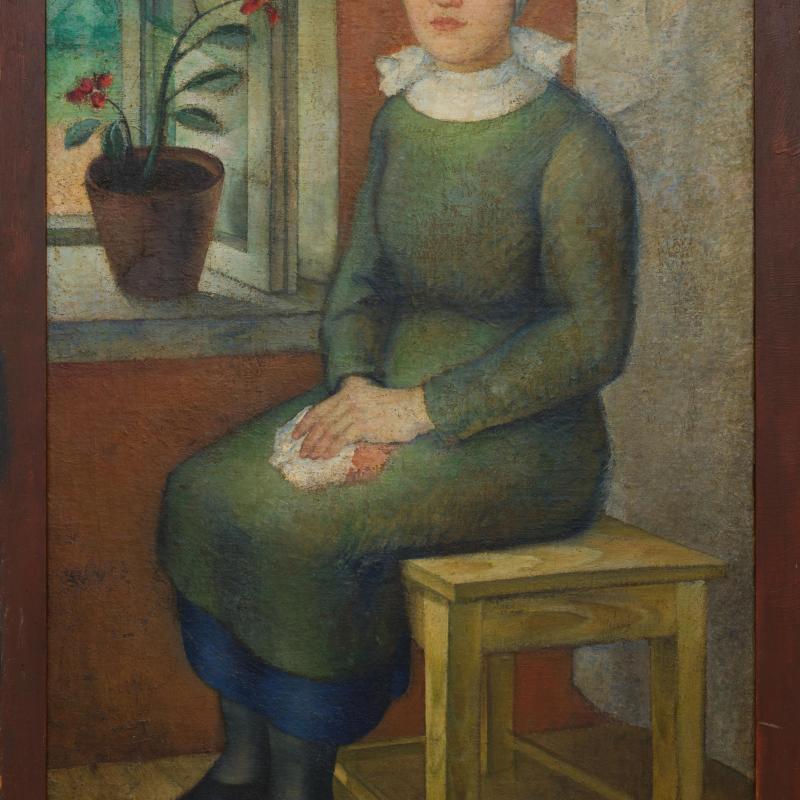 Simka SimkhovitchOlga, Russian Woman, 1922Oil on canvas37 X 23 inches,
Simka SimkhovitchOlga, Russian Woman, 1922Oil on canvas37 X 23 inches,
Framed: 39 1/2 X 23 3/4 inchesSigned lower right and titled and dated verso, Estate of the artist
Overview
Simkhovitch was born near the city of Kiev, Russia. When he was 7, he spent a year in bed with a severe case of measles. To amuse himself he used to sketch an old mill outside his window, and thus decided to become an artist. He studied at an art school in Odessa and was recommended to attend the Imperial Academy of St. Petersburg (a singular honor in Russia at the time) before the war and revolution. Swept up into the army before he could attend, his work was hung in the Museum of Revolution in Leningrad. He resumed his studies in 1914 and graduated four years later. He was sent to the United States in 1924 to do illustrations for Soviet textbooks. He quickly applied for and gained U.S. citizenship.
Simkhovitch integrated with the art world immediately and galleries such as Midtown Galleries and Marie Sterner took him on as part of their stable of artists. He also was employed by the WPA and executed major mural commissions throughout the country. One of his largest commissions was the Mississippi Court House. Life magazine profiled him twice with full-length features on his life here in this country as an artist. When he died at an early age, the Whitney Museum of Art in New York offered to do a retrospective and the widow denied the possibility and simply put his works away in storage.
Considered a master draftsman and an adherent of certain classicism, Simkhovitch’s compositions are often built up in a complicated but well-managed counterpoint. But at heart, he is a romanticist preferring the dreamy colors of a Russian fairy tale.
